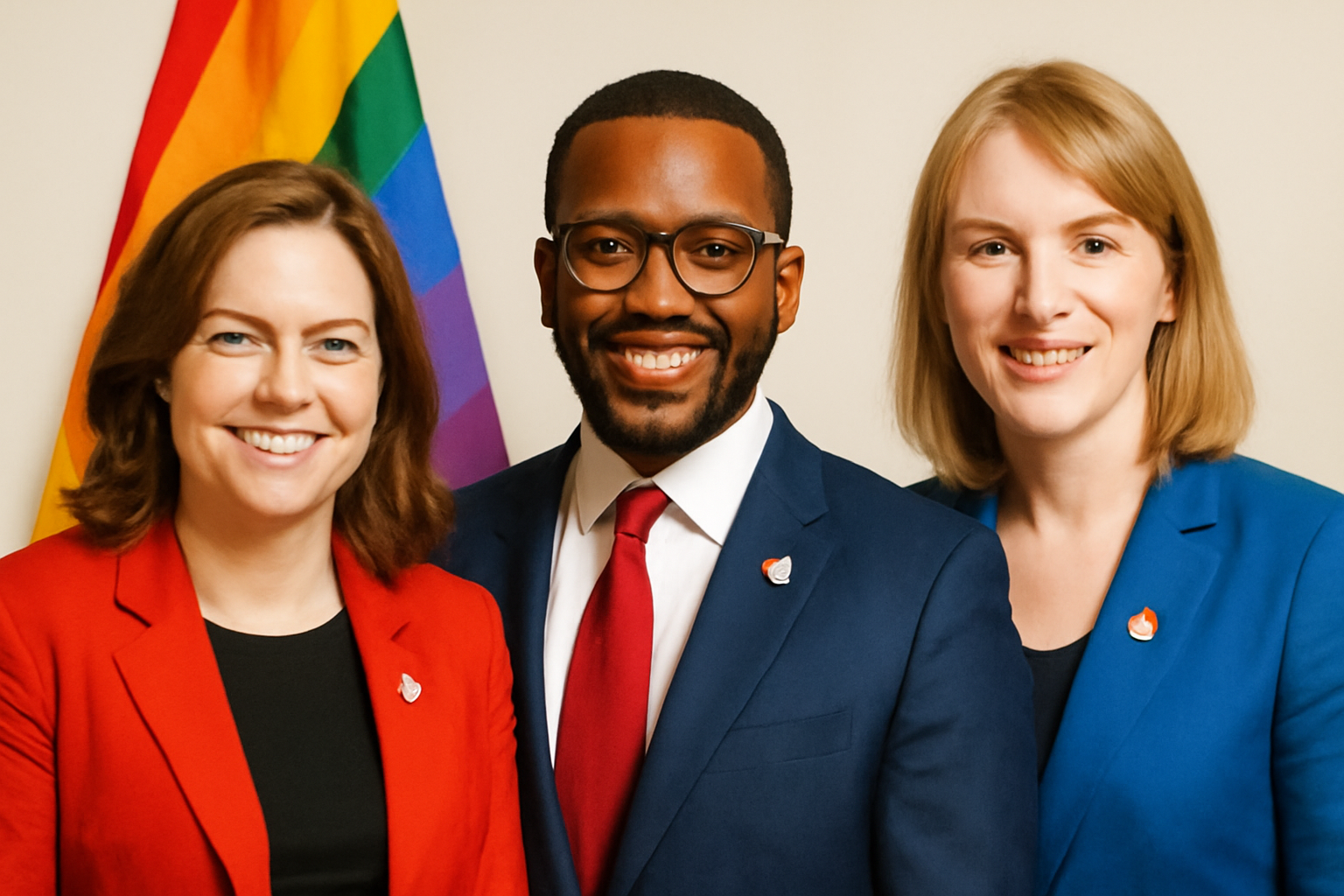
In the wake of recent statements by Prime Minister Keir Starmer regarding the definition of "woman" as per the Supreme Court's interpretation of the 2010 Equality Act, which aligns it with biological sex, there has been significant discourse within the political and LGBTQ+ communities. Starmer's position was clarified by an official spokesperson who stated that, according to the Supreme Court's judgement, a woman is a biological woman. This statement has sparked concerns about the Labour Party's commitment to upholding trans rights.
The Supreme Court's ruling has been perceived by many as a step back from Labour's historically supportive stance on LGBTQ+ issues, especially regarding the rights of trans individuals. PinkNews reached out to all 59 publicly out LGBTQ+ Labour MPs to gauge their stance on the matter and whether they believe that trans women are women and trans men are men.
Responses From LGBTQ+ Labour MPs
Out of the 59 MPs contacted, only four responded affirmatively. These MPs – Josh Newbury, Nadia Whittome, Kate Osbourne, and Olivia Blake – provided on-record comments affirming their belief in the validity and rights of trans people to live as their identified gender.
Olivia Blake, who represents Sheffield Hallam, emphasized that her stance has not changed, declaring unequivocally that trans women are women and trans men are men. She expressed her support for transgender and non-binary individuals to live authentically and questioned the implications of the ruling, which she believes raises more questions than it answers. Blake, who came out as bisexual in 2021, is committed to advocating for the rights of the transgender community in light of the Supreme Court's decision.
Nadia Whittome, the MP for Nottingham East, has been a vocal supporter of the trans community. She reiterated her position that "trans women are women, trans men are men, non-binary people are non-binary" during a recent demonstration in Nottingham. Whittome highlighted that the court's ruling specifically pertains to the legal definition within the Equality Act and does not redefine "woman" or "man" in other contexts, cautioning against misinterpretations of the judgement.
Kate Osborne, MP for Jarrow and Gateshead East, also reaffirmed her commitment to the trans community. She emphasized the importance of solidarity between the rights of trans people and lesbians, rejecting attempts to divide these communities. Osborne co-signed a pledge during Lesbian Visibility Week, standing against all forms of transphobia, lesbophobia, and misogyny.
Josh Newbury, representing Cannock Chase, clearly stated his belief that trans women are women and trans men are men. He noted that while the Supreme Court's ruling pertains to the 2010 Equality Act, it should not impede the societal recognition of trans individuals. Newbury underscored the importance of continuing to fight for the dignity, equality, and respect of trans people, asserting that the Labour Party has historically supported such rights and should continue to do so.
Lack of Response From Other MPs
Despite the significant implications of the ruling, the majority of the 59 out LGBTQ+ Labour MPs did not provide a response. Fifty-four MPs did not comment, and one, Antonia Bance, stated she had no comment to make. This lack of response has raised questions about the level of support within the Labour Party for trans rights at this critical juncture.
The MPs who did not respond include notable figures such as Dan Carden, Angela Eagle, and Wes Streeting, among others. The absence of a response from these MPs, many of whom have previously been regarded as allies of the LGBTQ+ community, is notable and has been a point of concern for activists and community members alike.
The debate around the definition of "woman" in legal terms and its implications for trans rights continues to be a contentious issue within the UK political landscape. The reaction to the Supreme Court's decision highlights the ongoing struggle for trans rights and the need for clear and supportive voices within political parties, particularly from members who identify as part of the LGBTQ+ community.
As the discussion evolves, it remains critical for politicians and activists to advocate for the rights and recognition of trans individuals, ensuring that their voices are heard and their rights protected. The Labour Party's stance on this issue will likely continue to be scrutinized as the implications of the ruling unfold.
Related Posts
Triumphant Trans Woman Wins Legal Battle and Inspires Others to Stand Up for Their Rights
Breaking new ground: a landmark victory in transgender rights After battling in courtrooms and enduring endless challenges, Diana Portillo, a transgender woman, has secured a monumental victory in her decade-long fight against workplace discrimination. The result? Nearly $1 million awarded in a historic settlement. But this isn't just a win on paper—it represents a powerful precedent in combati [...]
Pride Month in Latin America: Protests and Demands for Equality
**Celebrating Pride and advocating LGBTQ+ rights in Latin America** Pride Month in Latin America was a lively mix where celebration met activism. Communities united, not just throwing a party but making a stand—demanding equality and pushing governments toward better protection and rights recognition. Throughout Latin America, pride events erupted in marches and cultural displays, each with a c [...]
Transgender Erasure Actions Implemented by National Park Service
```html Trump administration's impact on national park service and transgender recognition The Trump administration made notable moves in undermining transgender representation, which included directing agencies like National Park Service not include "T" and "Q" when they refered “LGBTQ” in any official communication. This move seems part a broader plan by this administration aimed at reducin [...]